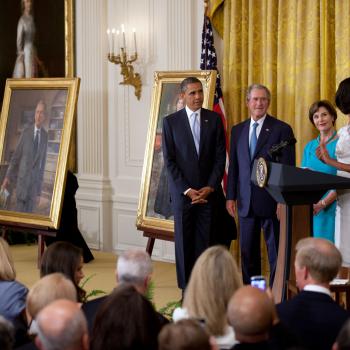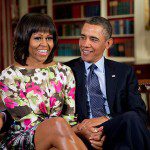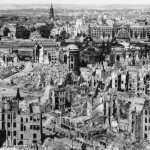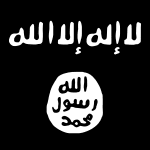What does Obama really think about ISIS and radical Islam? And about the Crusades, for that matter?
Here’s a link to the transcript of the president’s remarks at the National Prayer Breakfast.
And here’s the key quote:
And lest we get on our high horse and think this is unique to some other place, remember that during the Crusades and the Inquisition, people committed terrible deeds in the name of Christ. In our home country, slavery and Jim Crow all too often was justified in the name of Christ.
But here’s the context:
Prior to these infamous lines, he* says (* that is, the speechwriter),
As we speak, around the world, we see faith inspiring people to lift up one another — to feed the hungry and care for the poor, and comfort the afflicted and make peace where there is strife. We heard the good work that Sister has done in Philadelphia, and the incredible work that Dr. Brantly and his colleagues have done. We see faith driving us to do right.
But we also see faith being twisted and distorted, used as a wedge — or, worse, sometimes used as a weapon. From a school in Pakistan to the streets of Paris, we have seen violence and terror perpetrated by those who profess to stand up for faith, their faith, professed to stand up for Islam, but, in fact, are betraying it. We see ISIL, a brutal, vicious death cult that, in the name of religion, carries out unspeakable acts of barbarism — terrorizing religious minorities like the Yezidis, subjecting women to rape as a weapon of war, and claiming the mantle of religious authority for such actions.
We see sectarian war in Syria, the murder of Muslims and Christians in Nigeria, religious war in the Central African Republic, a rising tide of anti-Semitism and hate crimes in Europe, so often perpetrated in the name of religion.
So how do we, as people of faith, reconcile these realities — the profound good, the strength, the tenacity, the compassion and love that can flow from all of our faiths, operating alongside those who seek to hijack religious for their own murderous ends?
He then, subsequent to these lines, asks how to counter “a tendency in us, a sinful tendency that can pervert and distort our faith” — that is, not asking, on a macro level how to stop ISIS but how, on a personal level, each of us can keep our own selves on the right path — and the answer he offers is humility:
And, first, we should start with some basic humility. I believe that the starting point of faith is some doubt — not being so full of yourself and so confident that you are right and that God speaks only to us, and doesn’t speak to others, that God only cares about us and doesn’t care about others, that somehow we alone are in possession of the truth.
Our job is not to ask that God respond to our notion of truth — our job is to be true to Him, His word, and His commandments. And we should assume humbly that we’re confused and don’t always know what we’re doing and we’re staggering and stumbling towards Him, and have some humility in that process. And that means we have to speak up against those who would misuse His name to justify oppression, or violence, or hatred with that fierce certainty. No God condones terror. No grievance justifies the taking of innocent lives, or the oppression of those who are weaker or fewer in number.
Now, this is a bit weak — his leap from being humble enough to not think we have an exclusive lock on the truth, to speaking up against terror, is a bit strained.
But he then cites examples, among those in attendance, of people doing good works, and concludes as follows:
If we are properly humble, if we drop to our knees on occasion, we will acknowledge that we never fully know God’s purpose. We can never fully fathom His amazing grace. “We see through a glass, darkly” — grappling with the expanse of His awesome love. But even with our limits, we can heed that which is required: To do justice, and love kindness, and walk humbly with our God.
So:
First of all, Obama’s basic premise, both with respect to the Crusades and slavery, and Islamic terrorism, is that any “true” religion is pretty much by definition about God’s call “to feed the hungry and care for the poor, and comfort the afflicted and make peace where there is strife.” By definition, then, to any extent that a religion deviates from these pursuits, it’s a hijacking of religion by evil forces. Perhaps Obama uses the term “death cult” to acknowledge that there is a pseudo-religious element to them while denying them the label “religion.”
Which basically fits with my understanding of his own religious belief — that he doesn’t so much believe in the tenets of Christianity, that Christ is the Son of God, who came into the world to offer forgiveness of sins (let alone any more complex theological concepts), so much as believes in a more generic call to do good. And given that, it is entirely possible that he simply glosses over the entire complex structure of Islam, with the Koran, and hadiths, and Sharia, and fatwas, and the concept, so far as I understand it, that God is a harsh taskmaster above all (see In the Land of Blue Burqas, by Kate McCord, for an American woman’s encounters with Afghan women who believed exactly this), because it is so far out of line with his conception that “all religions are basically about a loving God who wants us to be nice to each other.”
Of course, such an insufficient understanding of what religion means, is clearly preventing him from being able to comprehend, let alone begin to address, the issue of Radical Islamism.
Maybe he knows full well that ISIS, the Muslim Brotherhood, the perpetrators of the Charlie Hebdo attacks, and the like are indeed Radical Islamists, but is afraid of the consequences, in terms of our relationship with other Islamic countries (e.g., Saudi Arabia), of openly saying so. Maybe he his secretly a sympathizer to their goals. But is it possible that he simply has an enormous blind spot?












